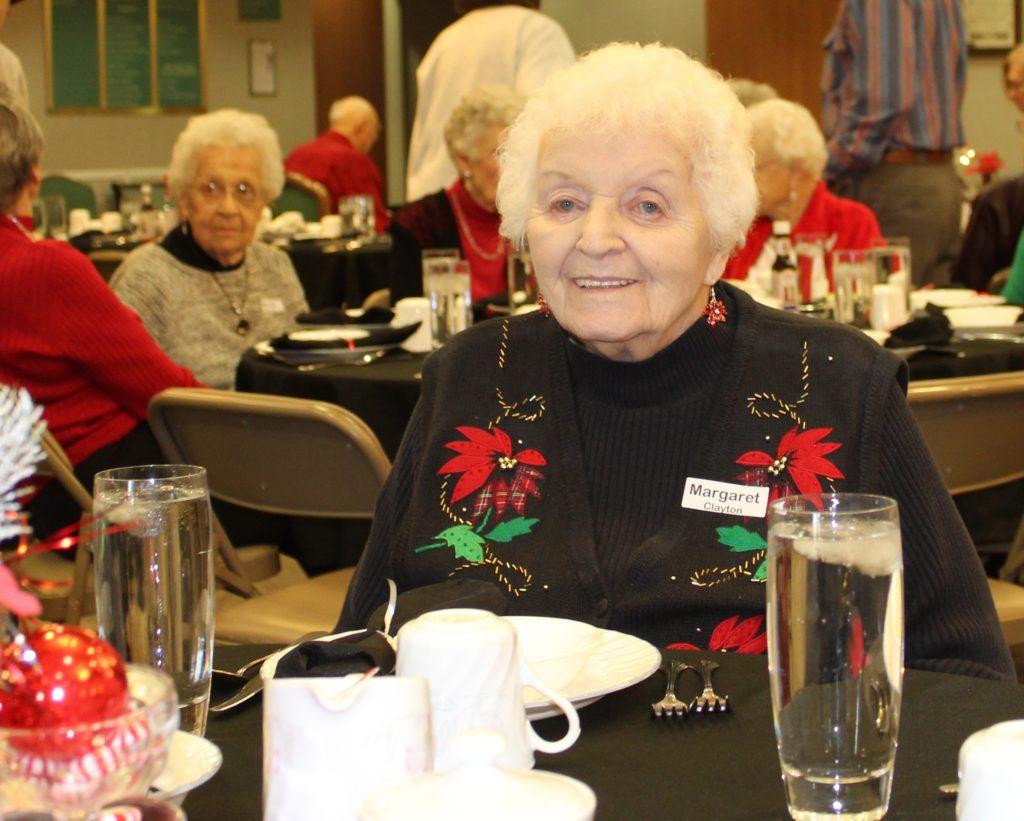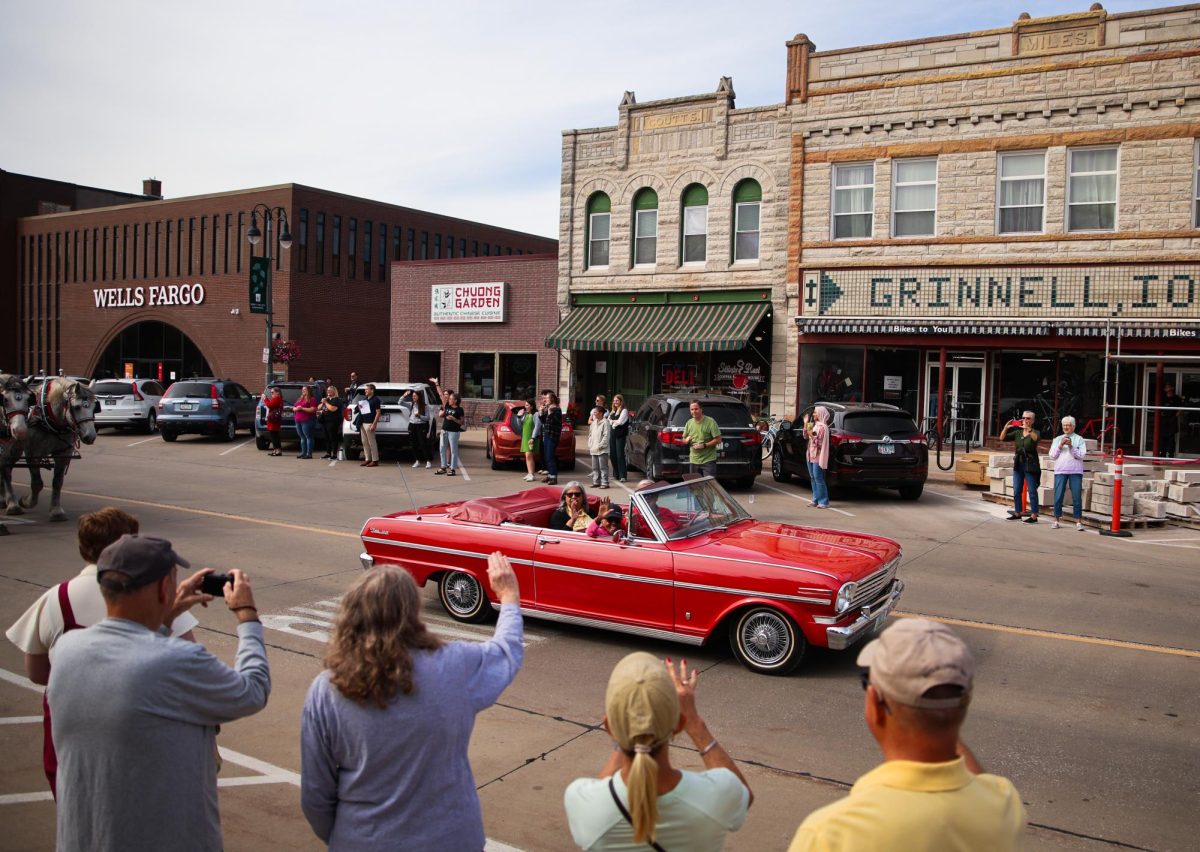On Monday, March 23 a letter arrived at Margaret Clayton’s door at the Seeland Park retirement campus in east Grinnell. The letter confirmed what she’d already heard — that the novel coronavirus COVID-19 had infected one resident at the facility she’d called home for many years, and worse, that it was a case of community spread.
Community spread, according to the Centers for Disease Control, is the “spread of an illness for which the source of infection is unknown.”
In a statement, Seeland Park administrator Dion Schrack confirmed that one case of COVID-19 was diagnosed on Friday, March 20 — the first in Grinnell, Iowa and Poweshiek County more broadly. “We have learned that this person had not traveled out-of-state. This is an apparent case of community spread. We encourage all of our Seeland Park residents to stay home unless absolutely necessary.”
Because of health care privacy rules, Seeland Park and the Grinnell Regional Medical Center do not disclose the names of their patients.
“This individual resides in our independent living community, Seeland Park, and is in isolation off of our campus at this time,” Tiffany Criswell, another representative from the retirement campus, said. “Individuals who have been in direct contact with the resident have been contacted. We have no cases of COVID-19 in our nursing facility or our assisted living community.”
On Wednesday, two more Poweshiek County residents between the ages of 60 and 81 tested positive for COVID-19, bringing the total number of infected in the County to four. Seeland Park is no longer allowing any visitors onto its campus until further notice in an effort to protect residents of the facility.
In an independent living community like Seeland Park, residents live in individual housing rather than apartment-style units. This presents unique challenges for enforcing quarantine orders: family members and friends can come and go as they please.
Margaret Clayton’s son John, age 67, is doing just that. “There’s no enforcement,” he said, confident that any restriction would be waived for him, anyway. “I put her medicines together, for instance. I’ve got to come in.”
John is doing his part to manage the risks to his mother’s health as best he can, even in the face of a global pandemic. That means altering the rhythms of Margaret’s everyday life. A nurse who visits Margaret thrice a week to take her blood pressure will no longer be stopping by, and John has canceled house cleaning for his mother to cut down on exposure.
“Now, I’m the only contact person my mother has, so I’ve got to be very careful so I don’t carry it in to her,” John said. He’s also concerned about his own health. People aged 65 years and older, as well as people who live in a retirement home or care facility, are at higher riskfor severe illness from COVID-19.
This is just one of the difficult decisions the Claytons have been forced to make amid an unprecedented time of social distancing and mounting strain on the nation’s health care system. Given the influx of COVID-19 cases, everyday doctor’s appointments and procedures will be delayed, with consequences ranging from annoying to urgent. COVID-19 cases will be prioritized. Something as simple as a sprained ankle could become a matter of life and death, especially for seniors.
The Claytons have had to cancel medical procedures at the University of Iowa. Margaret was scheduled to have her cataracts removed, but now, John says it could be November or even next year before it becomes possible to reschedule the procedure. A dental appointment has also been pushed back.
Although John does not reside in a nursing home, the rapid spread of the virus has also put his health at risk. He was scheduled for a procedure that would screen him for possible cancer. That appointment, too, was cancelled.
“Well, three months is no big deal, but if you start talking about six months [or] eight months — if it is cancer — it could be leaping into other parts of my body,” John said. “It’s like a bad dream that you can’t wake up from.”
To get his mind off the pandemic, John spends his days managing the family farm owned by his mother. “I’m happy to be outside in nature. Thank goodness. When I’m out there, I can put it all to the side.”
Even out in the fields, John can see traces of the coronavirus’s reach. Although he says his family’s farm won’t be impacted tremendously by the economic downturn that has accompanied COVID-19, other farmers won’t be so lucky. “Some of the other[s] have payments to make on their machinery and payments to make on their land. They’re the ones who are in real trouble.”
John says Margaret, who will celebrate her 98th birthday in July, remains in good spirits even as COVID-19 encircles the Grinnell community.
“She’s really a trooper. She went through the Depression and World War II. She lived on a farm for all of those decades, where you’re very isolated,” he said. “She shows humor — she’s not depressed or anything. She’s just like, ‘We’ll do what we need to do.’”
Still, the threat of the coronavirus and the many questions still left unanswered threaten the livelihoods of Grinnell’s elderly, who, like Margaret Clayton, lead active, independent lives.
“I would hate for this virus to come in and take her like that,” John said.


























































